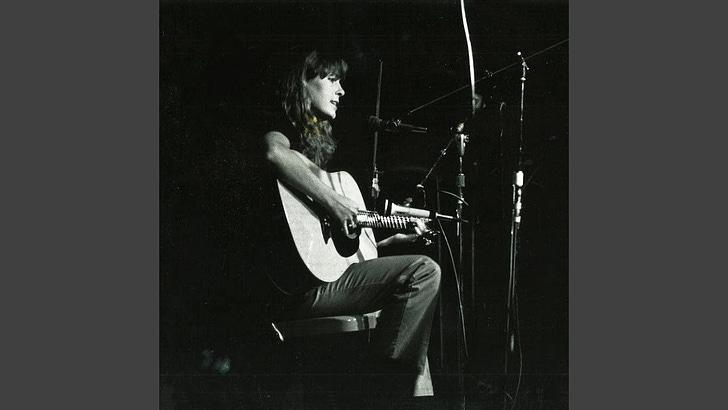The Lure of the Carefree Highway
Numero Group's surprising Cosmic American Music: Motel California
Today’s topic: Myths of America. (Too soon?)
We are a nation of storytellers and yarnspinners. The stories that have become part of our collective identity – about the rebellions that led to our founding, about the many conflicts that have defined the American Experiment since – resonate still not simply because they’re epics, but because they derive from/speak to qualities that are impossible to buy. Character. Values. Perseverance. Freedom.
These are big ideas. They mirror the vastness of the land, and its majesty; from the very beginning, the writers of America have drawn inspiration from the creeks and the mountains and the prairies, locations of stirring (and, for a long time, unspoiled) beauty. That’s part of the lure of adventure fiction like Jack London’s The Call of the Wild (1903) and many other classics.
For what it’s worth, it's also how we got the Byrds, the Flying Burrito Brothers, Buffalo Springfield and (sigh) the Eagles. Among many others.
Theirs was a different kind of American talespinning – confessional monologues about sins and betrayals rooted in the vistas of California, alive to desert winds and ocean tides. There wasn’t a rule that songwriters had to weave scenery into the songs, but many did, infusing brief evocations of natural beauty with the restlessness Joni Mitchell famously called the “urge for going.”
Gram Parsons and all those who followed him on the open road that came to be called “country-rock” found ways to situate the yearning for life experience within a highly specific sonic atmosphere – signifiers included graceful melodic arcs from pedal-steel guitar, lockstep and nothing-fancy acoustic guitar strumming patterns, steady clip-clopping drums and gruff, weary lead vocals that might have been tracked at 3 AM after some lightning rounds of tequila.
That template is pretty worn now, in part from decades of merciless repetitive exposure. (I seize every opportunity to jab the corporate rock enterprise that the Eagles became, but at the same time readily acknowledge the craft and genre-defining ethos of songs like “Peaceful Easy Feeling.”)
The expert archivists at Numero Group began exploring the neglected crannies of country-rock several years ago with a compilation called Wayfaring Strangers: Cosmic American Music. This set featured artists who worked in the long shadows of Parsons and the others in the late ‘60s, issuing their music on private-press labels and tiny independents. Maybe they performed live for awhile, but very few have made it into the official account of that era.
One takeaway from that record: Some of the unknowns were just as perceptive as the stars, and skillful in capturing the seductive California mythology. They copped the details of the sonic template, and tailored it to individual takes on the travel-as-escape, travel-as-redemption narrative.
In October, Numero brought out a Volume 2, Cosmic American Music: Motel California.
Sequels are always tough, but this one – which leans a bit more toward pop and casts a wider geographic net – is just as eye-opening as the first. Its songs traffic in expressions of pure wanderlust, the kind you scrawl down after stopping on a desolate highway. They convey traces of optimism and calm, and a sincerity about love and loneliness that’s very much characteristic of the era – even when the verses wander into abject cliches about the open road.
The highlights, though, suggest that the musical signatures Parsons and the other country-rock pioneers developed were rapidly embraced by a wide cohort of solid, long-neglected songwriters. The works of these acts – Hayne Davis (“Without Me”), the Jerry Busch Group (“Devon,” which features a wonderful tandem lead guitar break), the Iowa-based Country Spice (whose “Clouds” is closer to spangly psychedelic pop than anything country) and Cathy Hamer (link at top of page) – stand as something more than footnotes in the genre’s history.
These artists were a small part of the conversation then, and it's the luck of the business that they’re not remembered now. They (and others on Motel California) show how much artistic “room” there was within the territory marked “country rock,” and remind that though bands like the Eagles came to own (and then sanitize) the entire lane, for a while there was abundant creativity happening by the side of the road.





